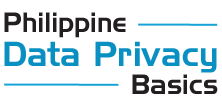Artificial intelligence (AI) agents are a breeze to create using Microsoft Copilot Studio, and almost just as easy to manipulate into divulging sensitive corporate data.
Despite broad security concerns about AI agents, last year, Microsoft decided to allow even totally nontechnical users to deploy their own autonomous bots. You don't need to know how to code at all now — using a simple graphical interface, employees can spin up robots that automate business processes, integrate with other business platforms, and can perform customer-facing functions.
